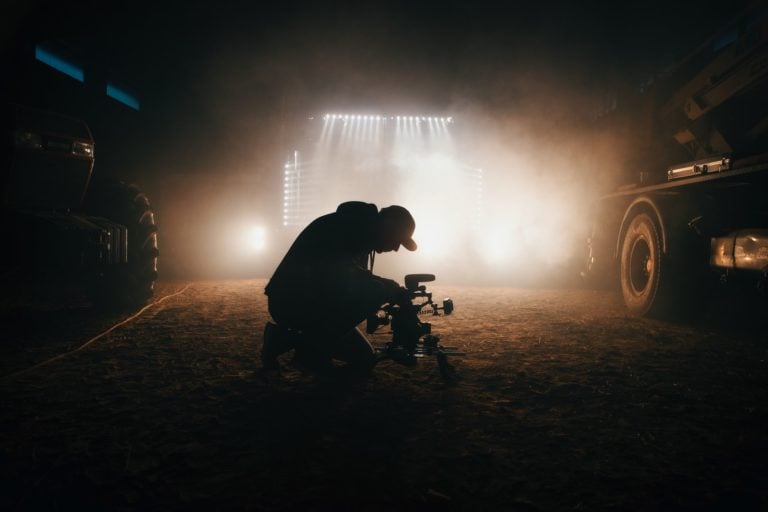
25 Acting Truths I Learnt Too Late
I’ve been out of drama school for 6 years. And I have learnt a lot. Unfortunately I learnt a few way to late, and it’s cost me time, money and roles. Here are 23 acting truths I wish I had learnt on day one. If you can let go of expectation and any sense of entitlement and head into the industry with an open attitude, you are giving yourself the best possible chance of success.
These are a mixture of acting lessons and career lessons that if you can take on board from day one, you are giving yourself a much better shot at being a successful, working actor.
#1 It’s not about creating characters.
Characters are less important than you think.
Most actors get excited by the idea of taking on characters. However, outside of the walls of a drama school, or high school, most roles to begin with are about bringing yourself to a role. Actors are obsessed with transcending into a new character, but 9/10 it’s about transcending into the moment, not the character. Do you understand the relationships in the scene? Do you have clear intentions behind the lines? Do you have an objective? Great characters are created by action, not by manufacturing an inauthentic observation of a person.
#2 Keep casting profiles simple
I have seen 100’s of casting profiles where actors include 6-7 differing headshots, and have showreels as long as the Titanic. The actors who have careers keep it simple. 1-2 headshots, and 1 solid showreel under 3 minutes.

#3 Typecast isn’t a bad thing
Typecast is a dirty word in the industry, but it contains an important word: cast. Finding the work that you resonate with and then making it clear to your agent and the broader industry that you want to work in that space is not a bad thing, especially early on in your career. If you are a physical comedian, your headshot, showreel and other media should be in alignment with that. It’s not about letting someone else put you in a bracket, but it is about being clear with where you want to be cast. If you put the message out there, people will respond.
#4 Voice work is the most important element of being an actor
Working on your voice is without a doubt the most important element of becoming a great actor. Having vocal flexibility and strength is imperative. This is especially true for theatre, but applies to all mediums. It is one tangible skill you can work on daily. So do it. If you wait until you are cast in a big theatre role, you’ll be playing catch up and inevitably find yourself way out of your depth.
Read: Voice Over Exercises
#5 Stop imitating other actors
Most people get into acting because they looked up to film and TV actors when they were younger, or were inspired by a certain performance. They usually know what they like to watch others do, and so can easily fall into a habit of imitating. Even on a subtle level. To steal ideas is great (and part of being an artist), but you have to find your own unique offering. If you are imitating another actor you will always lack authenticity. That person you’re trying to be like is already doing it pretty well.
#6 Perfectionism is debilitating
Don’t let perfection get in the way of good. There is no perfect audition, or performance, so stop aiming for it. Having high standards and pushing yourself to go further is great, but if it comes at the cost of not sending in work, or not getting up in class, then your perfectionism has gone too far.
#7 Work on projects that excite you, namely writers that excite you
“Follow the well written word.” This was a piece of acting career advice I garnered from Bryan Cranston (Breaking Bad). A simple mantra that has given rise to his spectacular career. It’s not to be a snob. Of course not, Bryan was in a kids TV show “Malcolm in the Middle” before he went on to Breaking Bad. But Bryan soared in Malcolm in the Middle because he resonated with the writer. When you are asked to audition or be a part of a production – read! If you fall in love with the script, you know you’re on safe ground. If it’s not speaking to you or exciting you, it might not be worth it.
#8 Don’t take it personally
Obvious statement, but I can now tell you after working on both sides of the desk that rejection really isn’t personal. It’s easy to feel that way, like you weren’t a good enough actor, or because that Casting Director just didn’t like you as a person. Most of the time you didn’t get that role because of other factors such as: your age, height, hair colour, location, etc. Which you have no control over. Instead, focus on the work not on the outcome. Focus on what you do have control over, and forget the rest.
#9 It’s not the rejection, but lack of opportunities
The most common phrase you hear from non-actors is “the rejection must be horrible”, and it is. But for me and many actors I’ve spoken with, that isn’t the worst part. If we had innumerable auditions we would be fine with rejection, knowing that in a few days time another chance would appear. But that isn’t the case. There are many fantastic actors just waiting for opportunities, and some never get the chance they deserve. It is the inertia one must come to terms with, not the rejection.
Read: How to Stay Inspired as an Actor
#10 Unique actors get cast
I touched on this in number 5 when I argued that imitating people won’t help you have an acting career. The actors I have seen triumph in the industry all have one thing in common. They are unique. Whether that is a unique look, or voice, or acting style or all the above, there is something that excites casting directors and producers. There are 1000’s of leading men and women all over the world, but what do you have that they don’t? What of yourself can you bring to your work?

#11 Friends matter
In 30 years your acting friends will be the industry. Once you have been in the game for a little while you start to see this happening. You see friends starting to work as casting directors, and agents, and film and TV producers. Don’t underestimate your friends, and make sure you remain a passionate and inspiring force in your community. You will be called on and cast by your friends more than anyone else.
#12 Competing with your class mates is stupid
Whether you are talking about a drama school class, or just a weekly acting class you are taking part in, competing with your peers is futile. You are always better to make allies of your fellow actors. They will be a supportive force in your career. There is also a much bigger industry out there, and getting bitter or resentful about the success of those around you is idiocy. Run your own race, and be happy for others success.
#13 Social media matters
I hate that I have this on my list, but it’s true. Producers are turning to social media more and more. I’m not encouraging buying followers or becoming a social media slave, but it is worth having a presence, and not being afraid of putting yourself out there a little. Telling the world who you are as a creative, and showcasing some of your work is not something to be ashamed of.
#14 Don’t survive, save
As actors we have to work to stay alive. And as we require flexibility, that often means we fall into menial jobs, that though poorly paid, offer flexibility. Most actors work to survive and spend money freely, waiting for the next big acting job. I encourage actors to always be saving. Having money in the bank means jumping on a flight to LA tomorrow is possible, or doing a Larry Moss masterclass, or new headshots. Being an actor is expensive, so keep a fund for acting. If you don’t reinvest you will not progress. Many actors work on skills that are better paid and remain flexible such as social media managing, photography, voice over, and many more. The aim here is to make more money in less time, giving you the freedom to do what you love.
#15 Be happy for others success
When your best mate tells you they just landed another role on TV, does your stomach tie itself in knots? This happens, we’ve all been there, but I promise you it’s not a great way to live. Work on being happy for other actor’s success. Even if it hurts to begin with. Their success, in no way takes anything away from your own.
#16 Directors love actors with OPINIONS
Every director I have worked with thus far has a wealth of knowledge behind them, and they draw on references all the time. It’s part of what makes them great directors, they’re great audience members too. Start exposing yourself to more. Films, TV, theatre, documentaries, scientific theories, live music, political debates, climate change reports – whatever interests you, follow it.
With more experience and exposure comes the formulation of an individual opinion. Do not make things up, and pick a side for the sake of it. But get to know yourself, what you stand for and what you believe in.

#17 Read more, watch more
If I read a play every week since leaving drama school, by now I could have read 350 plays. Instead I have probably read 50. Not bad, but a fraction of the theatre knowledge I could have had. The same goes for film. Are you watching films weekly? And good films? I wish I had started my learning from day one, instead of playing catch up.
Want access to 2500 plays? Join StageMilk Drama Club
#18 Make your own work
You knew this would be on the list, but I am going to keep hitting it home, until it does! Don’t wait until you’ve had 3 or 4 quiet years before making your own work. Make work from day one. You learn, you meet people, and it shows the industry you are motivated, hard working and creative. You may also find that writing, directing or producing is a real passion.
#19 Train
I studied at a top drama school, but my American accent isn’t great. So every time I get an audition I am doing a half baked job. I also need to work more on my screen skills, but haven’t been in a screen class for years. Whether you have formally trained, or just done a few masterclasses, keep going. Keep working on the areas that are important, so you don’t have to keep doing mediocre work. The industry has no place for mediocrity.
#20 Networking is not quite as dirty as we think
I have always hated the word networking, and people who actively seek out the “important people” in the room. But there is a good version of networking. One where you are open and honest about being an actor, and enthusiastic about collaborating with people. Don’t be ashamed to meet people, ask for advice, and be proud of yourself. I have seen so many actors succeed because of their connections and relationships they have built within an industry. Networking can be dirty, but it doesn’t have to be.

#21 Every audition matters
If you are in the fortunate position of being swamped with auditions, don’t take it for granted. I have many good friends who thought the tap would keep running and so underprepared, going in for a series of lacklustre auditions. Those casting directors simply ruled them out, unimpressed by the work. Don’t ever let a lack of time, or enthusiasm for a project, get in the way of doing good work. Every audition is an opportunity to act, and so make use of it.
#22 Your attitude is as important as your acting
I get the opportunity to interview many of the best actors, directors and casting directors in the business. And one thing that surprised me in my interviews was how often the phrase “I just want to work with someone I like” came up. Directors especially put the emphasis on actors being good to work with. Being a great presence in the rehearsal room, or on set is so important. I don’t think I’ve been too bad, but if your attitude needs a make over, get it sorted before it really is too late.
#23 Self Tapes are the currency of the industry
Actors, myself included, are obsessed with spending money on high quality showreels. These usually set you back around $750-$2000. However, agents, casting directors and other industry professionals often prefer self tapes as they allow them to focus on your acting, not the production values. If you need a new showreel, or just want to send something fresh to your agent, try a self tape before forking out a fortune for a new showreel.
#24 Representation matters
When I was leaving drama school, teachers would abate our fears at showcase, with the line, “it doesn’t really matter who your agent or manager is.” The truth is, it does. Having a great team behind you is vital, and many great actors have never had the chance to take off because no one had their back. Don’t wait 5 years before realising that one audition every year could be improved upon.
#25 Voice over work is the best
Most actors don’t realise that they have all the skills to be successful voice artists. Voice work can serve not only as a great side hustle, but can also become a fully fledged career option. I wish I had found voice work earlier: it’s fun, lucrative and something most actors are naturally suited to.
Conclusion
So there you have it, 25 lessons that I wish I knew from day one. What they all come back to is letting go of your ego, and any sense of entitlement and focusing instead on the work. We all want to work with inspired, creative people, so be someone that you would want to work with. As always if you have any lessons you wished you’d learnt early on, let us know in a comment or email.
Alternative acting training…
Training can take many forms – drama school, weekly acting classes, workshops, private coaching etc. These are all fantastic ways to learn and practice your acting! BUT they are expensive. And not flexible when it comes to fitting into your crazy schedule of casual jobs, babysitting, auditions and 4x other side hustles. We created StageMilk Drama Club for busy, but passionate people. I know how easy it is to procrastinate from acting, by being super busy. It’s not hard to do. The Drama Club is an online community where you can come to find some accountability, at a very affordable monthly price. Each month we assign projects, and you film and send it in for personal feedback. It’s a great way to stay in the work, practice and learn. In the platform you also get to join in on live acting classes with industry experts, get access to industry resources, interviews, exclusive articles, over 2500+ plays, and interact with our passionate community of members. Wanna know more? Email [email protected]. See you in there!

Acting is what I want to persue in life ,due to the fact that our country is not that developed and not well equipped on such things it’s very hard to find agencies!